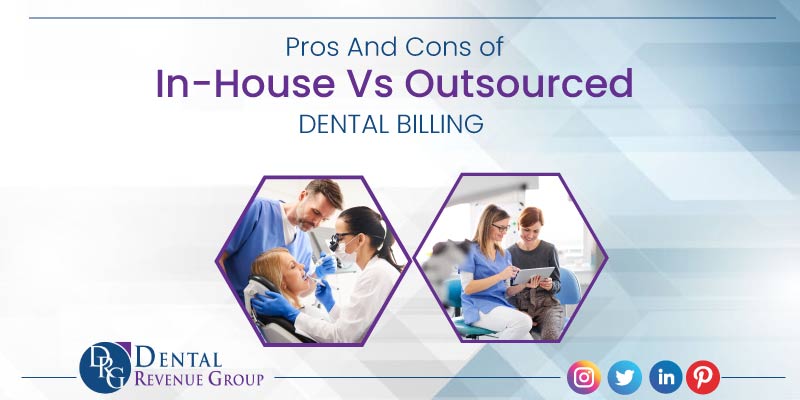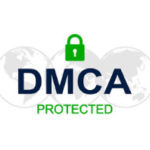Dentists often come to a crossroads to resolve revenue issues where they must choose between employing a skilled in-house dental billing professional or outsourcing to a dental billing company. Deciding which option is the right fit for one’s dental practice can prove difficult in such a scenario. If you’re thinking of switching from in-house to outsourced dental billing, here’s what you need to know.
What’s The Difference Between In-house and Outsourced Dental Billing?
If you’re looking to save money and have more control over your dental billings, outsourcing is the way to go.
In-house dentists usually handle everything from scheduling appointments to billing directly with insurance companies. They also often do all of their patient care–from x-rays/fillings up through extractions/periodontics down. It means there’s no need for any outside assistance like an assistant or hygienist. They have an internal employee to handle the billing process.
Outsourced dentists do not have direct access to your insurance company and must work closely with another third-party company called a “payor”. Outsourced dental billing specialist handles claims processing on behalf of insurers throughout the US. This process typically includes gathering information about claims submitted by patients before sending them off after approval by their clients’ respective agencies’ underwriters.
To start, let’s take a look at the pros and cons of each.
Pros:
- You get a team of experts ready to help you navigate your dental practice.
- You have access to a large network of dentists who can refer patients to you and are willing to work with your schedule.
Cons:
Outsourcing takes away control of some aspects of running your business like account management, scheduling appointments, and billing patients for services rendered by their dentists (which is why we recommend using an outside company).
Pros of In-house Dental Billing
The main advantage of this approach is that the dental practice has direct control and oversight over the billing process. Other benefits include:
Increase control
Increase control over the quality of care provided by dentists and staff members who work for them–and ultimately improve customer satisfaction ratings! This is important because if patients think their dentist isn’t doing his job properly then they won’t come back again. Having an in-house biller as an employee of the dental practice can maintain control over the billing process. The dental team, including the office manager, may feel more comfortable with this setup as they retain oversight of the billing process. This is in contrast to the initial perception that outsourcing the billing process would result in a loss of control.
Onsite personnel
Some providers may prefer to have in-house billing and coding staff for the added convenience of having them physically present. This setup allows for quicker resolution of any issues and the availability of their expertise for an immediate consultation.
Cons of In-house Dental Billing
For those who are looking to make the most of their time, in-house dental billing may be a good choice. However, there are some drawbacks to this method of dental practice management that should be considered before you commit.
Expensive billing solutions
In-house dental billing is more expensive than outsourcing your billing services: You’ll need to pay your employees more if they’re going to take on all the extra work that comes with managing your practice’s finances and insurance claims. Additionally, if you have multiple doctors working together at once (or even just one), then it can be difficult for them each individually to keep track of their own accounts receivables and payables–especially since these tasks don’t always require much training or experience!
Lack of dental billing professionals
Your in-house insurance coordinator likely works solo and lacks access to a team of expert billing professionals. This means that if they encounter any issues or need assistance, there may not be anyone in the office who knows how to assist. If they are unavailable due to absence or an emergency, insurance billing tasks will go unattended.
Pros of Outsourced Dental Billing
There are a few reasons why you might choose to outsource your dental billing:
More focus on patient care
When professionals outsource their dental billing services they have more time to focus on patient care. As an in-house dentist, you’re responsible for all of your patients’ dental bills, including paying them and handling their insurance claims. This can be time-consuming and stressful in itself, but when there are multiple people involved (including assistant dentists), it can become even more overwhelming. Outsourcing allows you to hire specialists like anesthesiologists or assistants who only handle specific tasks without taking up any of your time or energy.
Handle Insurance claims properly
Outsourced dental billing companies handle insurance billing to relieve your team of the task. Working with insurance claims and insurance companies can be frustrating, but these companies take care of it so your team can focus on other important responsibilities. They manage the tedious tasks, such as investigating denied claims, appealing them, and working on the outstanding claims aging report, freeing up your team’s time.
Less expensive
Starting a new business or dealing with employee transitions can be made more budget-friendly by outsourcing. Dental billing companies usually charge based on the size and revenue of the dental office. The monthly rate can vary from $1,300 to $5,000, depending on the practice size. Hiring an experienced insurance coordinator could cost a minimum of $5,000 per month for a smaller practice, but larger practices may require a higher amount.
Increased Visibility
Dental billing companies should provide detailed performance reports automatically or on demand. This gives you a clear understanding of your billing operations without having to constantly manage or monitor staff.
Cons of Outsourced Dental Billing
Outsourcing dental billing can be a great way to save money, but there are also some downsides to having an outside company handle your dental billings.
Handing Over Insurance Billing
An outsourced biller works remotely within your dental software and may only interact with your team via video conferencing. This can be a difficult adjustment for some offices, as it requires trust in the process and the remote biller. The lack of physical presence may make the team feel like they’ve lost control, but the benefits include improved accuracy and quicker insurance payments, leading to clearer patient billing.
Reduced Control
Outsourcing dental billing to a third-party company may result in a loss of control over certain aspects of your business. While you will receive reports, it may not be equivalent to managing them internally.
Inconsistent Expenses
Outsourcing expands your business but also brings the potential for fluctuating costs over time.
The best option for your practice depends on your circumstances, but be sure to consider both options before making a decision. Before you choose between in-house and outsourced dental billing, it’s important to understand the pros and cons of each option.
Conclusion
If you’re a dental practice owner, you’ve likely heard the terms “in-house” and “outsourced” thrown around. But what exactly do they mean? And which one should be used in your practice? We’ll break down all of these questions in this blog so that you can make an informed decision on which way forward is best for your business. Dental Revenue Group offers dental billing services to increase your collection rate, improve efficiency and cost savings, and enhance the patient experience. Schedule a call with one of our experts to learn more about our dental billing services.











